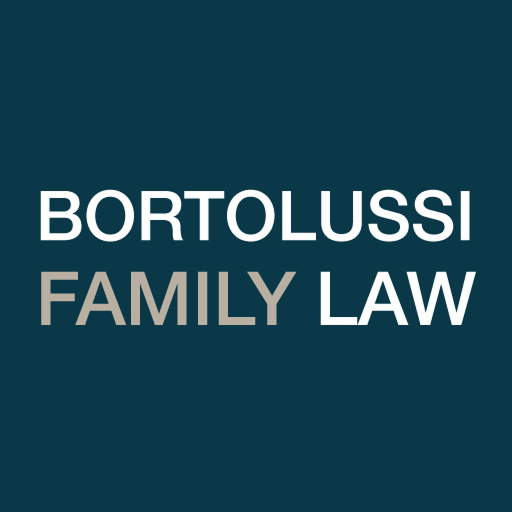Ontario Family Law Considerations for Cottage Properties

The family cottage is often among a family’s most cherished possessions. Regardless of the time of year, a family cottage is a place for loved ones to gather and make memories. In recent years, sales of cottage properties in Ontario have soared, and many families are now looking for domestic vacation options.
Considering the difficulty and expense of procuring a new cottage, and the high property values of cottages that may have been passed down over time, these properties can become a source of conflict when a couple separates or divorces. Whether the cottage is a relatively recent acquisition or has been in one spouse’s family for generations, it is important to understand how a cottage is viewed when it comes to the equalization of property in a divorce and how families can prevent a cherished cottage from becoming a sticking point down the road.
Matrimonial Home May Refer to More Than One Residence
It comes as no surprise that the primary family home will be treated as the matrimonial home in a divorce, requiring the spouses to share in the value of the home, even if just one person owns the home. However, this does not necessarily apply only to a family’s primary residence, as some families maintain multiple matrimonial homes.
The concept of the matrimonial home is defined in s. 18(1) of the provincial Family Law Act, which states that:
“Every property in which a person has an interest, and that is or, if the spouses have separated, was at the time of separation ordinarily occupied by the person and his or her spouse as their family residence is their matrimonial home.”
The term “ordinarily occupied” refers to more than just the home where the family spent most of their time. Any property in Ontario where the family or spouses regularly spent time, even if just a few weeks per year, can be considered a matrimonial home under the Family Law Act.
What Changes When a Property Becomes a Matrimonial Home?
Matrimonial homes are treated uniquely under the Family Law Act. When calculating a spouse’s net family property to determine equalization, the matrimonial home receives special treatment. Unlike other property, the value of a matrimonial home is not included in a spouse’s date of marriage net family property, regardless of when it was purchased. Additionally, funds which come from gifts or inheritance received by one party during marriage are usually excluded from a spouse’s net family property. However, if that money is put into a matrimonial home for a down payment, renovation or to pay the mortgage, such funds are no longer excluded.
The implications of the net family property calculation, as it relates to matrimonial homes, are that the spouse who holds title may lose the ability to claim a date of marriage deduction for property owned prior to marriage and the ability to claim an exclusion for funds they inherited or received as a gift which was put into a matrimonial home.
How are Cottages Treated in a Divorce?
When it comes to a recreational property, how the property is treated after the breakdown of a relationship will likely depend on how it was acquired and whether it is a matrimonial home. If the cottage was a joint purchase between the spouses, the cottage would likely be sold with the proceeds divided between the parties unless one spouse has the resources to buy out the other’s interest.
If the cottage was owned by one spouse prior to the marriage, whether they inherited it from the family or purchased it themselves, the other spouse would generally be entitled to half the increase in property value from the date of the marriage to the date of separation. This may enable the spouse who owns the property to keep it as long as they are able to afford the equalization payment regarding the value increase without selling it. However, if a cottage qualifies as a matrimonial home, then it is treated differently than described above upon breakdown of a marriage.
If an inheritance or gift received by one spouse during the marriage is used to purchase a cottage, which in turn becomes a matrimonial home, the ability to exclude the inherited or gifted funds is lost. As a result, the entire value of the cottage on date of separation will be included in the titled spouse’s net family property with no exclusion applying to the inheritance or gifted funds.
Furthermore, if a cottage is owned by one party prior to marriage, and that property subsequently qualifies as a matrimonial home on date of separation it is not relevant how the property was initially acquired. The value of the cottage on date of separation will be included in the titled spouses net family property as a date of separation asset, without the benefit of the date of marriage deduction.
In both cases, the spouse who holds title to the cottage property will likely see a drastic increase to their net family property. As a result, the spouse holding title may be able to keep the cottage so long as they are able to afford the inflated equalization payment.
Cottages and Common-Law Relationships: Unjust Enrichment
While the concept of the matrimonial home applies only to married couples in Ontario, it is also possible for a common-law partner to claim rights over certain property. For instance, if the partner made financial contributions to the upkeep, mortgage, or other expenses related to a recreational property, they might have a valid claim to a portion of the property’s value based on the doctrine of unjust enrichment.
To establish a claim for unjust enrichment, the claimant must be able to demonstrate that the other party experienced some sort of benefit and that the plaintiff had a corresponding detriment. For example, the cottage owner would experience an increase in property value if their partner contributed financially to improvements to the property. In addition, the claimant must be able to show that it would be unjust for the other spouse to retain that benefit without compensation to the claimant.
Legal Protections to Keep a Family Cottage in the Family
When a cottage has been in a family for decades, marriages can complicate or threaten the family’s ability to hold on to the property. However, there are ways to ensure that a cottage owned prior to a marriage or inherited or gifted to one spouse during the marriage will not become subject to equalization in a divorce.
Marriage or Cohabitation Agreements
A domestic contract such as a marriage or cohabitation agreement can be used to clearly indicate a couple’s expectations with respect to family property. It is possible to indicate that a cottage property is not to be included in the equalization of net family property in the event of a separation or divorce. The enforceability of domestic contracts are very much determined by how the contract is negotiated and entered into. A consultation with one of our Family Law lawyers will provide the information necessary to allow the parties to ensure that the purpose of the contract will be uphold by the courts if every challenged later.
Family Trust
If a spouse’s parents wish to gift them the family cottage or leave it to them as part of their estate, they can opt to create a family trust to hold ownership of the property. This way, the property will not be included as an asset of the spouse in the event of a separation and will not be subjected to equalization.
Contact the Family Lawyers at Bortolussi Family Law in Vaughan for Trusted Advice on Property Division and Equalization Payments
At Bortolussi Family Law, our skilled divorce lawyers regularly advise clients on their rights when it comes to the matrimonial home, from possession to equalization. Our team prioritizes keeping clients informed in order to empower them, bring clarity to their matter, and simplify the process of separation or divorce whenever possible. It is our goal to help clients maintain a productive and collaborative relationship with their former spouse while also positioning them for a successful outcome. To discuss how we can assist you with your family law matter, please reach out to us online or by phone at 416-987-3300.
